 Your new post is loading...
 Your new post is loading...

|
Scooped by
Gust MEES
September 25, 2019 11:20 AM
|
ESORICS 2019 Conference: Researchers at the University of Luxembourg have discovered a flaw in the security standard used in biometric passports (e-passports) worldwide since 2004. This standard, ICAO 9303, allows e-passport readers at airports to scan the chip inside a passport and identify the holder.
Most passports today use the standard ICAO 9303, which is issued by the International Civil Aviation Organization (ICAO). The standard is designed to ensure that the privacy and unlinkability of the passport holder is protected to the highest degree. Unlinkability ensures that an attacker could not distinguish if two elements are closely related.
Dr Ross Horne, Prof. Sjouke Mauw, PhD candidate Zach Smith and Master student Ihor Filimonov tested the standard. They discovered a flaw which allows specific non-authorised equipment to access passport data. “With the right device, you can scan passports in close vicinity and reidentify previously observed passport holders, keeping track of their movements”, Dr Horne explains. “Thus, passport holders are not protected against having their movements traced by an unauthorised observer.” Learn more / En savoir plus / Mehr erfahren: https://www.scoop.it/topic/luxembourg-europe/?&tag=University+Luxembourg https://www.scoop.it/topic/luxembourg-europe/?&tag=ePassport

|
Scooped by
Gust MEES
September 14, 2019 11:44 AM
|

|
Scooped by
Gust MEES
July 16, 2019 9:22 AM
|
12th Conference of the International Test Commission
Diversity and equity in a globalized digital world:
Opportunities and challenges for assessment
14-17 July 2020
University of Luxembourg,
Belval, Luxembourg
The Grand Duchy of Luxembourg is delighted to invite you to the 2020 ITC Conference, taking place at the University of Luxembourg’s Belval Campus. The conference promises to be an exceptional professional and scientific experience in a unique cultural environment renowned for its vibrancy and cosmopolitan flair. With its flourishing economy, extremely diverse population and active commitment to research, Luxembourg is the perfect venue to host the 2020 conference.
Learn more / En savoir plus / Mehr erfahren: http://www.scoop.it/t/luxembourg-europe/?&tag=Education https://www.scoop.it/topic/luxembourg-europe/?&tag=University+Luxembourg

|
Scooped by
Gust MEES
March 27, 2019 12:43 PM
|
In June 2014 Bitcoin users were confronted with the unthinkable. A Bitcoin mining pool called Ghash.io had attained control over 51% of the network's total mining power. Bitcoin users, miners and developers responded with shock, panic and denial, but could do nothing about the fact that Ghash.io now had the ability to manipulate the network at will.
Researchers at the University of Luxembourg are now the first to propose a blockchain system that mitigates this risk, guaranteeing proper performance even when more than 51% of the system’s computing power is controlled by an attacker. Their system, RepuCoin, makes it thousands of times more expensive to attack than Bitcoin. It was developed at the University’s Interdisciplinary Centre for Security, Reliability and Trust, and has the potential to be applied in a number of global sectors including fintech, energy, food supply chains, health care and future 5G telecommunications networks.
At their heart, cryptocurrencies such as Bitcoin, which use blockchain technology, are distributed ledgers. Each block in a blockchain is a record of transactions, like a page in a ledger. When the page is full, we open a new page. In the case of a cryptocurrency we gain a new block in the blockchain. And they are distributed because the whole network sees and approves new blocks through democratic consensus. Users therefore don’t have to place their trust – and money – in the hands of a single central authority. Learn more / En savoir plus / Mehr erfahren: https://www.scoop.it/t/luxembourg-europe/?&tag=Blockchain https://www.scoop.it/t/21st-century-learning-and-teaching/?&tag=blockchain http://www.scoop.it/t/luxembourg-europe/?tag=Digital+L%C3%ABtzebuerg https://www.scoop.it/topic/luxembourg-europe/?&tag=University+Luxembourg

|
Scooped by
Gust MEES
March 21, 2019 10:57 AM
|
L’Université du Luxembourg et le fabricant européen de fusées ArianeGroup ont annoncé, ce mardi, un accord de collaboration pour promouvoir la recherche dans le domaine des systèmes de propulsion.
L’Université du Luxembourg a annoncé, ce mardi, dans un communiqué, la signature d’un partenariat avec ArianeGroup pour promouvoir la recherche dans le domaine des systèmes de propulsion. «Ce projet de deux ans a pour objet de réduire le coût de lancement des fusées. La recherche est financée par ArianeGroup et le Fonds national de la recherche (FNR) du Luxembourg», ajoute le communiqué de l’Uni. Learn more / En savoir plus / Mehr erfahren: https://www.scoop.it/t/luxembourg-europe/?&tag=Space https://www.scoop.it/topic/luxembourg-europe/?&tag=University+Luxembourg

|
Scooped by
Gust MEES
February 12, 2019 5:31 PM
|
Die Universität Luxemburg startet zu Beginn des kommenden Semesters einen Raumfahrt-Studiengang. Der “Interdisciplinary Space Master” ist ein Masterstudiengang, der sowohl technische als auch wirtschaftliche Aspekte der Raumfahrt behandeln soll. Laut einer Mitteilung der Regierung ist der Studiengang “einzigartig in Europa”, da sich die Studierenden Wissen im Management von gewerblicher Raumfahrt aneignen können.
Der Studiengang wird von der Luxemburger Raumfahrtbehörde mitfinanziert.
Learn more / En savoir plus / Mehr erfahren: https://www.scoop.it/topic/luxembourg-europe/?&tag=Space https://www.scoop.it/topic/luxembourg-europe/?&tag=University+Luxembourg

|
Scooped by
Gust MEES
January 11, 2019 2:50 AM
|
Zwei Wissenschaftler der Luxemburger Universität wurden in die Liste der weltweit einflussreichsten Wissenschaftler in den Bereichen Computerwissenschaft und Ingenieurswissenschaft und in der Kategorie fachübergreifende wissenschaftliche Forschung eingestuft.
(chl/C.) Die Professoren Stéphane Bordas und Alexandre Tkatchenko der Universität Luxemburg werden auf der von Clarivate Analytics publizierten Liste „Highly Cited Researchers 2018“ unter den einflussreichsten Forschern weltweit geführt, teilt die Luxemburger Hochschule in einem Kommuniquee mit. Auf dieser Liste wird das oberste Prozent der Forscher geführt, die nach dem „Web of Science“-Zitierungsindex am häufigsten in einem Jahr und einem bestimmten Bereich zitiert wurden und so ihren besonderen Einfluss nachgewiesen haben.
Learn more / En savoir plus / Mehr erfahren: https://www.scoop.it/t/luxembourg-europe/?&tag=University+Luxembourg

|
Rescooped by
Gust MEES
from 21st Century Learning and Teaching
December 11, 2018 7:39 PM
|
Avec les nouveaux modèles d’enseignement, tous les équilibres, tous les codes sont remis en cause. Au sens strict du terme, il n’y a plus d’enseignant, pas de cours, pas de programme, rien que des cas concrets à résoudre en trouvant soi-même la solution ou en s’associant à d’autres élèves. Cette pédagogie met l’accent sur le comportement, les capacités à travailler à plusieurs et à apprendre très vite en autonomie.
Pour Romain Martin, vice-recteur pour les affaires académiques de l’Université du Luxembourg, «la principale erreur consiste à se focaliser sur les technologies elles-mêmes. Il ne faut pas simplement regarder l’outil, mais comment ces outils sont utilisés.» Une désacralisation des technologies pourtant au cœur des enjeux, au profit d’une démarche pédagogique nouvelle. La tendance est ainsi à l’«adaptive learning». [Gust MEES] pratiquant ceci déjà depuis 2002 et enfin reconnu... Learn more / En savoir plus / Mehr erfahren: https://www.scoop.it/t/21st-century-learning-and-teaching/?&tag=Modern+Learning https://gustmees.wordpress.com/?s=learning+2+learn

|
Scooped by
Gust MEES
November 6, 2018 10:15 AM
|
The University of Luxembourg’s Interdisciplinary Centre for Security, Reliability and Trust (SnT), together with lux-Airport, has field-tested a hi-tech airport security system, paving the way for a future without random searches and lengthy queues.
A team of scientists, technicians and lux-Airport staff worked through the night to test the intelligent end-to-end system, which analyses a passenger’s onsite behaviour, travel history and booking profile to classify them according to their ‘trustworthiness’. It then funnels Passengers into different risk-based levels of security screening (Trusted, Normal and Enhanced Risk).
FLYSEC, an EU-funded consortium of 11 partners, including the University of Luxembourg and lux-Airport, spent three years developing the system, which they put through its paces in a final field-test at Luxembourg Airport. The team installed sophisticated sensors throughout the airport to track 100 actors – playing the role of passengers – as they made their way from landside to boarding, enacting different scenarios.
Within the system, airport staff benefit from a range of state-of-the-art technology. Smart kiosks verify travel documents and use Passenger Name Record data to identify unusual booking and travel profiles. Meanwhile, using movement pattern analysis, the system alerts staff to suspicious behaviour within the airport. A web platform brings all of this information together to provide holistic airport monitoring and scenario simulation, while mobile apps provide security staff with on-the-ground operational and incident support. Learn more / En savoir plus / Mehr erfahren: https://www.scoop.it/t/luxembourg-europe/?&tag=University+Luxembourg

|
Scooped by
Gust MEES
September 24, 2018 3:17 PM
|
C'est un bâtiment, eco-responsable au concept architectural unique, qui se dresse au cœur de la cité des sciences et entre les vestiges des hauts fourneaux. La Maison du livre est l'illustration d'une réhabilitation réussie de l'ancienne halle, «Möllerei», qui servait au stockage du minerai de fer et de coke. «Cette bibliothèque universitaire, Luxembourg Learning Centre, allie à la fois un projet de mise en valeur du patrimoine industriel et la réalisation d'un équipement multifonctions et multiservices en matière d'outils technologiques et de concepts pédagogiques», a rappelé François Bausch, ministre du développement durable et des Infrastructures, lundi lors de son inauguration. «Ce n'est pas qu'une bibliothèque, c'est un lieu où les nouveaux concepts digitaux et pédagogiques s'entremêlent aux livres et à l'échange de connaissances» a ajouté le ministre délégué de l'Enseignement supérieur et à la Recherche, Marc Hansen. Dans un espace de 8 300 m², dédiés à la consultation, au travail et aux réunions, les ordinateurs côtoient les rangées de livres triés par thèmes. À chacun des trois étages, correspond une thématique différente. Si ce nouvel outil s'adresse aux étudiants, enseignants, chercheurs, il est également ouvert au grand public. Learn more / En savoir plus / Mehr erfahren: https://www.scoop.it/t/luxembourg-europe/?&tag=University+Luxembourg

|
Scooped by
Gust MEES
September 20, 2018 2:50 PM
|
L’Université du Luxembourg, en collaboration avec la Fondation Zentrum fir politesch Bildung et le Luxembourg Institute of Socio-Economic Research (LISER), a lanceé le portail smartwielen.lu en vue des élections nationales 2018.
Le portail smartwielen.lu permet aux utilisateurs de comparer leurs vues politiques avec celles des candidat(e)s et des partis politiques. Les utilisateurs sont invités à répondre à 43 questions couvrant des thématiques telles que l’économie et le travail, l’aménagement du territoire, l’environnement, les finances, la santé, l’éducation et les affaires étrangères.
Grâce à un algorithme adapté, ces réponses sont comparées aux réponses des candidats des partis politiques. Des représentations graphiques affichent ensuite les similarités et différences d’opinion entre les utilisateurs et les candidats. A ce jour, 62% des candidats aux élections ont répondu au questionnaire, et des nouveaux profils s’ajoutent régulièrement.
« Le questionnaire a été élaboré sur base des programmes des partis politiques, des débats et discussions dans les médias et des interviews avec des journalistes. Nous avons également demandé à différents groupes d’intérêts et institutions de la société civile de nous proposer des questions », expliquent Michèle Schilt et Jenny Gross, du Zentrum fir politesch Bildung. Learn more / En savoir plus / Mehr erfahren: https://www.scoop.it/t/luxembourg-europe/?&tag=Elections

|
Scooped by
Gust MEES
September 20, 2018 11:50 AM
|
Dans le cadre des élections législatives du 14 octobre prochain, l’Uni a développé un outil qui permet, à l’aide d’un questionnaire de 43 questions, de savoir à quels partis et candidats le profil politique des utilisateurs correspond le mieux.
Déjà en place lors des dernières élections législatives de 2009 et 2013, cet outil de «matching» entre électeurs, candidats et partis politiques est proposé par l’Uni pour l’échéance du 14 octobre.
Devenu Smartwielen.lu, ce site web permet aux utilisateurs, par le biais d’un questionnaire de 43 questions, de comparer leurs vues politiques à celles des candidats et des partis politiques des prochaines élections législatives.
La moitié des candidats a déjà répondu. «Il est alors intéressant d’observer si les candidats ont suivi la ligne de leur parti ou s’ils s’en distinguent», poursuit le chercheur de l’Uni. On peut notamment observer ci-dessous que les réponses des candidats du DP sont restées fidèles à leur programme électoral. Learn more / En savoir plus / Mehr erfahren: https://www.scoop.it/t/luxembourg-europe/?&tag=Elections

|
Scooped by
Gust MEES
July 31, 2018 4:58 AM
|
The smartphone – one of the most important resources for a refugee. It helps them stay in touch with family back home and it is also a way to stay abreast of current affairs or talk with other refugees. On another note, smartphones provide access to the Internet and, consequently, to information portals of local administrations. The problem for migrants, however, is that many of these official websites are simply unnavigable. The information is hidden behind puzzling menus, written in officialese, or provided in English and French but not in Arabic.
This prompted SnT scientist Prof. Dr. Charles Max to develop the smartphone platform youarewelcome.lu for refugees. Learn more / En savoir plus / Mehr erfahren: https://www.scoop.it/t/luxembourg-europe/?&tag=Refugees https://www.scoop.it/t/luxembourg-europe/?&tag=University+Luxembourg
|

|
Scooped by
Gust MEES
September 16, 2019 7:13 AM
|
Pour intégrer ce cursus, les postulants devaient être titulaires d'un baccalauréat ou d'une maîtrise en physique, mathématiques, ingénierie, informatique, géophysique ou science, histoire que chaque participant aborde les cours techniques avec le même bagage.
Concept unique
Le but de ce master, qui se déroulera sur deux années, est de fournir aux étudiants les compétences nécessaires en ingénierie, entrepreneuriat et gestion de projets pour travailler dans le secteur spatial.
Il s'agit d'un concept unique, comme le souligne la directrice Tonie Van Dam: «C'est la seule formation intégrant l'enseignement et l'apprentissage des missions spatiales, les ressources et la robotique à des cours en finance ou de gestion de projet. Les étudiants vont également acquérir les compétences informatiques nécessaires pour interpréter les observations de l'espace. Ce type de programme est particulièrement utile au Luxembourg où les start-up sont très fortement soutenues.» Learn more / En savoir plus / Mehr erfahren: https://www.scoop.it/t/luxembourg-europe/?&tag=Space https://www.scoop.it/topic/luxembourg-europe/?&tag=University+Luxembourg

|
Scooped by
Gust MEES
September 11, 2019 3:55 PM
|
The Times Higher Education World University Rankings 2020 ranks the University of Luxembourg in the position 201-250 among 1,396 universities worldwide.
The new ranking was published on 11 September 2019.
While its positioning within the world’s leading universities remains unchanged compared to the prior year, the University of Luxembourg has improved its underlying score.
The University of Luxembourg is number 1 worldwide for its "international outlook"
The University of Luxembourg receives the highest marks and scores number 1 worldwide in the evaluation category "international outlook" (compared to 3rd position in the prior edition). It also improves its rating in the large majority of the other evaluation criteria used by Times Higher Education (THE) such as teaching and research
“Our consistent ranking among the world-leading universities is testimony to the quality of research and teaching at the University of Luxembourg. I am pleased to note our improved scores particularly in the teaching and research pillars of the THE Ranking. This result encourages us to further develop the core missions of the university,” states Stéphane Pallage, rector of the University of Luxembourg.

|
Scooped by
Gust MEES
May 23, 2019 12:37 PM
|

|
Scooped by
Gust MEES
March 22, 2019 6:16 AM
|
The University of Luxembourg and the Goodyear Innovation Center in Luxembourg have launched a new research project that studies the use of Near-Field Communication (NFC) in automotive safety systems.
The four-year research project has the potential to initiate major innovations in the automotive sector. It is funded by the Luxembourg National Research Fund (FNR) and Goodyear.
Near-Field Communication, a promising technology
Near-Field communication is poised to fundamentally change the automotive sector. “NFC is a form of short-range wireless communication that relies on electric and magnetic fields generated around a transmitting antenna. This communication technology is now being explored for automotive applications due to its unique characteristics,” explains Ahmad Rida Tawakuli, PhD student within the Security and Networking Laboratory (SECAN-Lab) at the University, who initiated the project. Learn more / En savoir plus / Mehr erfahren: https://www.scoop.it/topic/luxembourg-europe/?&tag=University+Luxembourg https://www.scoop.it/topic/luxembourg-europe/?&tag=Research

|
Scooped by
Gust MEES
March 4, 2019 7:19 AM
|
04-03-2019
The European Commission has recently launched four Cybersecurity Competence Networks with the aim of accelerating cybersecurity research by drawing together Europe’s leading experts. Each network brings together some 40 partners from across Europe, with a total initial financing of around €65 million provided by the Horizon 2020 programme. The objective is to scale up existing research for the benefit of Digital Single Market cybersecurity and to arrive at a blueprint for the governance of ongoing large-scale collaboration in the field.
Participation in the networks was highly competitive, and the University of Luxembourg was selected for three of the networks. Through its Interdisciplinary Centre for Security, Reliability and Trust (SnT), it will contribute experts working in resilient systems for the Internet of Things (IoT), biomedical data protection, automated detection and fixing of Android app vulnerabilities, big data, and blockchain based distributed systems.
Cross-sector expertise
Professor Paulo Esteves-Veríssimo, FNR PEARL Chair, is coordinating SnT’s involvement in the initiative, alongside colleagues Professor Yves Le Traon and Professor Radu State: “SnT is a good example of a research centre with expertise across cybersecurity, from cryptography and blockchain to IoT and software testing. But if we are to secure our critical industries — healthcare, energy, finance, transportation, and public administration — we need actors from across Europe pulling together and challenging one another to reach new heights,” he says.
Professor Esteves-Veríssimo’s own efforts focus on extreme threats to critical information infrastructures, such as power grid control and autonomous driving systems. “The systems we use today are complex, and that creates vulnerabilities,” he explains. “My team investigates innovative algorithms and mechanisms we can apply to make systems tolerate faults and intrusions in an automatic way; our critical information infrastructures need to endure and adapt, regardless of whether the problem is an accidental malfunction or a malicious attack. We call it resilience, and it needs to be built into our digital infrastructure. Learn more / En savoir plus / Mehr erfahren: http://www.scoop.it/t/luxembourg-europe/?&tag=Cybersecurity http://www.scoop.it/t/luxembourg-europe/?tag=Digital+L%C3%ABtzebuerg https://www.scoop.it/topic/luxembourg-europe/?&tag=University+Luxembourg

|
Scooped by
Gust MEES
January 11, 2019 3:56 AM
|
Professors Stéphane Bordas and Alexandre Tkatchenko have been ranked among the most influential scientific researchers in the “Highly Cited Researchers 2018” list published recently by Clarivate Analytics.
The list highlights world-class researchers who have demonstrated significant influence, as measured by the number of citations of published papers within the top 1 per cent by citations for field and year in the citation index Web of Science. The 2018 ranking is based on citations by peers during the period 2006-2016 and includes, for the first time, cross-field performance. Almost 6,000 researchers are part of this prestigious list, 4,000 in 21 research fields and 2,000 for cross-field performance. Learn more / En savoir plus / Mehr erfahren: https://www.scoop.it/t/luxembourg-europe/?&tag=University+Luxembourg

|
Scooped by
Gust MEES
December 9, 2018 9:44 AM
|
Daniele Brida, professeur en physique expérimentale, s’est vu attribuer le prix Consolidator Grant. Doté de quelque deux millions d’euros et attribué par le Conseil européen de la recherche, il récompense un projet d’imagerie au laser. Cette somme sera versée pendant 60 mois.
Les équipes de recherche de l’Uni se distinguent une nouvelle fois. Daniele Brida, professeur de physique expérimentale de la matière condensée, a décroché le prix Consolidator Grant du Conseil européen de la recherche (ERC), doté d’une enveloppe de quelque deux millions d’euros. Learn more / En savoir plus / Mehr erfahren: https://www.scoop.it/t/luxembourg-europe/?&tag=University+Luxembourg https://www.scoop.it/t/luxembourg-europe/?&tag=ERC

|
Scooped by
Gust MEES
November 23, 2018 7:44 AM
|
Le bras technologique de l’Uni a signé jeudi un partenariat avec la fintech basée à la Lhoft. L’objectif est de développer une nouvelle architecture de plate-forme numérique beaucoup plus sécurisée par rapport aux solutions proposées aujourd’hui.
C’est un projet qui implique encore une grande part d’inconnu, et cela le rend d’autant plus excitant. «Nous avons un large espace de manœuvre pour notre recherche, mais l’idée est de redéfinir le mode dont nous pensons la conception d’une plate-forme autour de la blockchain pour la rendre encore plus sûre», s’enthousiasme Radu State, expert en sécurité des réseaux au SnT. Learn more / En savoir plus / Mehr erfahren: https://www.scoop.it/t/luxembourg-europe/?&tag=Blockchain https://www.scoop.it/t/luxembourg-europe/?&tag=SnT https://www.scoop.it/t/luxembourg-europe/?&tag=Cybersecurity

|
Scooped by
Gust MEES
October 3, 2018 10:19 AM
|
LuxCube: First CubeSat satellite student project in Luxembourg!
LuxCube is first CubeSat satellite student project to be developed at the University of Luxembourg. Having primary educational objective, LuxCube project aims to provide hands-on satellite-build experience to students. Students will learn to design, build, test, and operate space hardware. LuxCube design complies with one unit CubeSat standards of 10x10x10cm in size and a maximum weight of 1.33kg.
LuxCube secondary mission objective is to image the Earth’s surface, particularly Luxembourg, and to evaluate the flight data collected from the subsystems for future CubeSat’s designs.
Learn more / En savoir plus / Mehr erfahren: https://www.scoop.it/t/luxembourg-europe/?&tag=Space https://www.scoop.it/t/luxembourg-europe/?&tag=University+Luxembourg https://www.scoop.it/t/luxembourg-europe/?&tag=LuxCube

|
Scooped by
Gust MEES
September 22, 2018 8:45 AM
|
Wenn die Masterarbeit ins All fliegt - Uni Luxemburg startet neues Projekt „LuxCube“
Was ist klein, wiegt etwas mehr als ein Kilo, fliegt bald durchs All und kommt von der Uni Luxemburg? Ein Mini-Satellit, den Ingenieurstudenten gemeinsam mit ihren Professoren und spezialisierten Firmen bauen werden. Das kann als Thema für die Bachelorarbeit geschehen, für den Master, im Rahmen eines Praktikums oder als freiwillige Arbeit: Studenten der Uni Luxemburg können nicht nur ihren eigenen Satelliten entwerfen und bauen, sondern auch die so gesammelten Daten verwerten. Der Satellit soll am Ende in 500 Kilometer Höhe fliegen und Bilder von Luxemburg liefern.
Auf dem Campus Kirchberg wurde gestern Nachmittag „LuxCube“, das erste studentische Projekt dieser Art in Luxemburg, vorgestellt. Das Projekt um einen sogenannten „CubeSat“ soll Studenten praktische Erfahrungen im Satellitenbau vermitteln. Sie sollen lernen, Hardware für das Weltall zu entwerfen, zu bauen, zu testen und zu betreiben. Einmal in der Umlaufbahn, soll der würfelförmige Mini-Satellit „LuxCube“ dann die Erdoberfläche, insbesondere Luxemburg, abbilden und Flugdaten auswerten. Möglich macht das die Zusammenarbeit mit dem Satellitenbauer Planet aus den USA und Gomspace. Das dänisch-schwedische Unternehmen Gomspace ist auf Nanosatelliten unter zehn Kilogramm Gewicht spezialisiert und nimmt an der luxemburgischen Initiative SpaceResources.lu teil.
Learn more / En savoir plus / Mehr erfahren: https://www.scoop.it/t/luxembourg-europe/?&tag=Space https://www.scoop.it/t/luxembourg-europe/?&tag=University+Luxembourg

|
Scooped by
Gust MEES
September 20, 2018 2:40 PM
|
The University of Luxembourg together with the University of Strasbourg and the Johannes Gutenberg University Mainz have developed a joint international study programme in Biomedicine. The tri-national Master starts in September 2018 with seven students.
With the growing importance of academic and industrial biomedicine laboratories in the region and in line with Luxembourg’s strategy to support training and research in medicine, the new Master of Science in Biomedicine will offer a strong multidisciplinary education in the fields of cardiovascular and metabolic diseases, neurosciences and immunology.
As Course Director from the University of Luxembourg, Professor Thomas Sauter presents the main advantages of the Master: “On top of an excellent interdisciplinary training, students will benefit from a multicultural approach, working with international students, learning from different scientific viewpoints, making the link between medicine and research, working with key industry partners, understanding local and international challenges. They will be part of a privileged network, composed of academic and industrial stakeholders. Learn more / En savoir plus / Mehr erfahren: https://www.scoop.it/t/luxembourg-europe/?&tag=University+Luxembourg

|
Scooped by
Gust MEES
August 27, 2018 6:53 AM
|
LuxLogAI 2018
Share this event:
Add to my Calendar (Outlook/ICal)
Event date: Monday, 17 September 2018 09:00 am - Tuesday, 25 September 2018 06:00 pm
Place: The University of Luxembourg, Belval Campus, MSA (Maison du Savoir).
The Luxembourg Logic for AI Summit (LuxLogAI 2018) brings together the 2nd International Joint Conference on Rules and Reasoning (RuleML+RR 2018), the 14th Reasoning Web Summer School (RW 2018), the 4th Global Conference on Artificial Intelligence (GCAI 2018), the Decision Camp 2018 on Business Rules and Decision Management Technology, the workshop on MIning and REasoning with Legal texts (MIREL 2018) and the Deduktionstreffen 2018.
With its special focus theme on “methods and tools for responsible AI”, a core objective of LuxLogAI is to present the latest developments and progress made on the crucial question of how to make AI more transparent, responsible and accountable.
Registration: https://luxlogai.uni.lu/registration/
Learn more / En savoir plus / Mehr erfahren: https://www.scoop.it/t/luxembourg-europe/?&tag=AI https://www.scoop.it/t/luxembourg-europe/?&tag=University+Luxembourg
|



 Your new post is loading...
Your new post is loading...




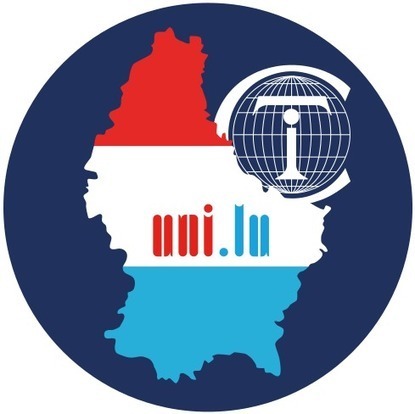


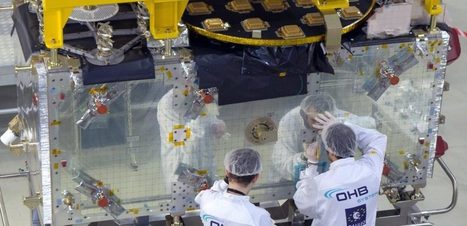
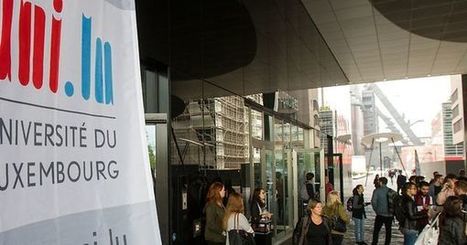




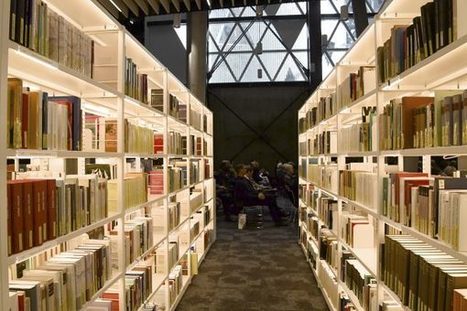
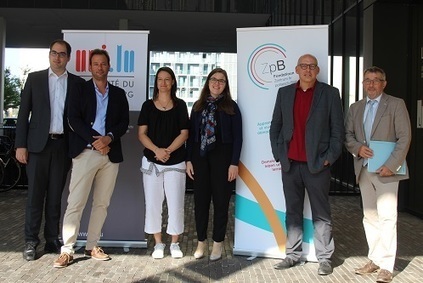
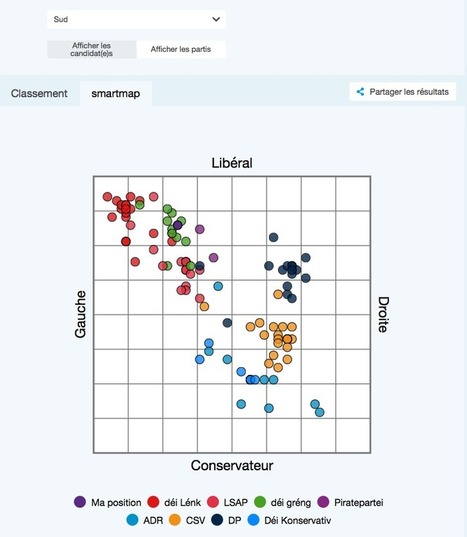
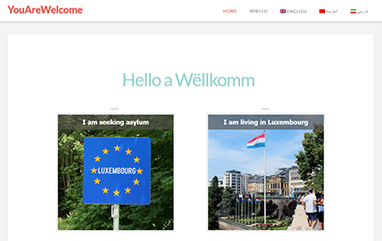

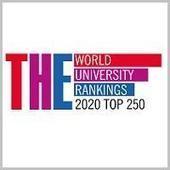



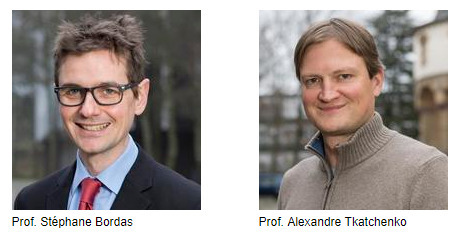

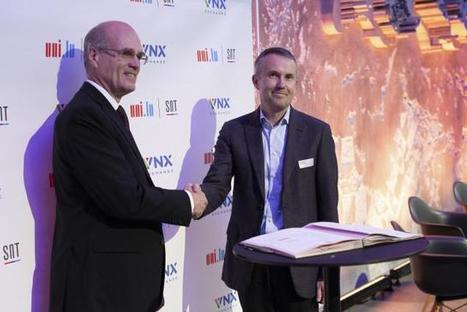
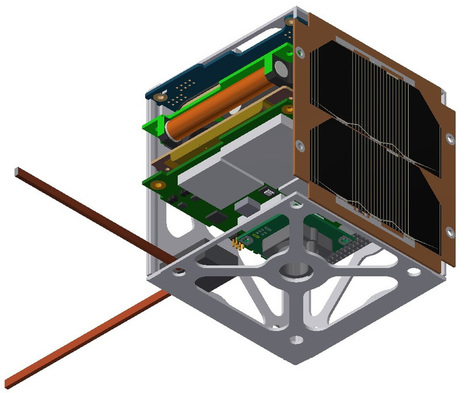
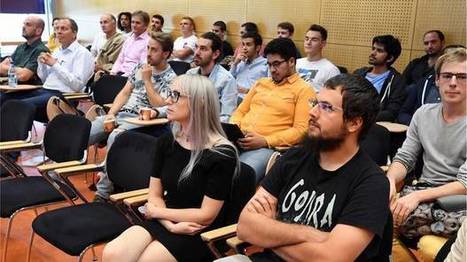

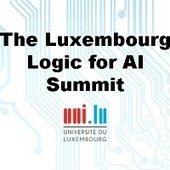





ESORICS 2019 Conference: Researchers at the University of Luxembourg have discovered a flaw in the security standard used in biometric passports (e-passports) worldwide since 2004. This standard, ICAO 9303, allows e-passport readers at airports to scan the chip inside a passport and identify the holder.
Most passports today use the standard ICAO 9303, which is issued by the International Civil Aviation Organization (ICAO). The standard is designed to ensure that the privacy and unlinkability of the passport holder is protected to the highest degree. Unlinkability ensures that an attacker could not distinguish if two elements are closely related.
Dr Ross Horne, Prof. Sjouke Mauw, PhD candidate Zach Smith and Master student Ihor Filimonov tested the standard. They discovered a flaw which allows specific non-authorised equipment to access passport data. “With the right device, you can scan passports in close vicinity and reidentify previously observed passport holders, keeping track of their movements”, Dr Horne explains. “Thus, passport holders are not protected against having their movements traced by an unauthorised observer.”
Learn more / En savoir plus / Mehr erfahren:
https://www.scoop.it/topic/luxembourg-europe/?&tag=University+Luxembourg
https://www.scoop.it/topic/luxembourg-europe/?&tag=ePassport